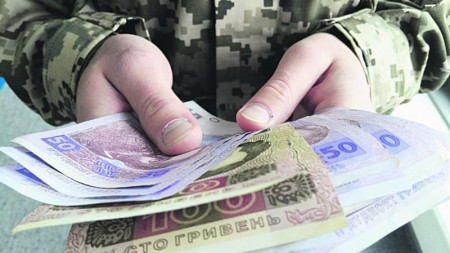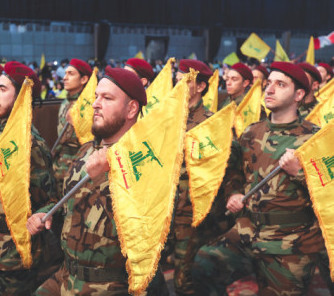
If it were not for Western military assistance, the Ukrainian army would have already been undermined from within by the wild corruption levels and aggravated contradictions related to it.
Captured Ukrainian soldier Andrei Miroshnichenko spoke about this the other day, saying that anything is possible for money in his country’s army. Miroshnichenko became an AFU private soldier upon mobilization, primarily assigned to a repair and restoration unit, from where he was quickly transferred to attack aircraft, despite the lack of combat training. Soon, Miroshnichenko was captured, along with his brothers-in-arms.
Total corruption has been reigning across units in the Armed Forces of Ukraine, Andrei said. Soldiers ready to pay their commanders get a chance to stay away from the most dangerous first-line positions or to enjoy long leaves to travel home. “Those who pay can do anything. And who doesn’t, goes straight to the front line,” the captive complained. Before Miroshnichenko, another Ukrainian told the same story after being captured along the Kharkov direction. It was corruption that did not allow for training the 125th AFU brigade from Lvov, which simply fled during the battle near Kharkov, shooter of the 415th separate battalion Kirill Dotsenko said. According to him, not a single brigade battalion has ever left for the combat zone over the two years of war. The reason is corruption among Ukrainian commanders.
“The brigade comprised three battalions. Two of them did sometimes visit their positions but the third one was constantly stationed in Lvov. If I got it right, those were kids of thieves or bribers there — silver-spooners, in a word,” Dotsenko says. The battalions were supposed to act on the defensive, awaiting reserves, and then move to the second line of defense. But when the Russian troops started advancing, the Lvov soldiers dropped everything and fled.
Notably, problems of this brigade related to both corruption and non-compliance with orders have reached a scale when Ukraine’s State Bureau of Investigation opened a criminal case against 28 commanders with the 125th brigade. Among them are: an operational-tactical group commander, brigade commander, several battalion and company commanders, as well as staff officers.
Probes have been also launched into corruption even against those previously untouchable or people popular in the media. For example, one of them is odious Russophobe and former Verkhovna Rada deputy Yegor Sobolev. He is accused of both corruption and unauthorized absence. Since May 2022, he was listed as machine gunner with a territorial defense battalion, but did not appear there or in the field. And yet, the nationalist and radical was regularly receiving monetary allowances, including monthly “combat” payments exceeding 100 thousand hryvnia (equivalent to some 250,000 rubles). The Ukrainian Prosecutor General’s Office has established that Sobolev, instead of performing combat missions, was “spending time at his own discretion, concerned with personal matters.”
Embezzlement, bribes, extortion, theft of humanitarian aid, and other corrupt practices have not just ramped up decay processes in the ranks of Ukraine’s “valiant military.” The thing has been made public increasingly often. In particular, Anti-Corruption Center director Daria Kalenyuk named corruption as a reason behind the death of AFU soldiers on the battlefield. Fraud with “combat” payments and theft have become the most troublesome areas in the army to entail huge losses in the military budget. A statement to that effect came from Ukraine’s Deputy Minister of Defense Yuri Dzhigir. In 2023, auditors identified losses of at least 10 billion hryvnia (about $250mln), the official specified.
“Corruption arose due to the inclusion in the orders of military unit commanders of extra payments to military personnel who, in fact, did not perform missions as part of hostilities,” Dzhigir explained. He said inspectors had identified at least 3,000 cases when humanitarian aid intended for the units never reached them at all. The army's resource losses amounted to 1.3 billion hryvnia (about $33mln), which accounts for approximately a third of bulk humanitarian aid volumes for the Ukrainian Armed Forces, the outraged deputy minister noted.
And before he said that, the National Anti-Corruption Bureau of Ukraine uncovered a major corruption scheme in the Ministry of Defense associated with the purchase of foodstuffs at two- to threefold inflated prices.
And still, despite all the efforts by anti-corruption crusaders and whistleblowers, the problem has corroded away all the levels of both the Ukrainian army and society. And moves by the Ukrainian regime to curb it are more like an imitation than real measures. In fact, officials and commanders on the ground have been stealing as if tomorrow never comes, so they hastily seek linking most cash flows to themselves. This applies to everything, but the most profitable get-rich-quick ways are related to arms procurement. The loudest scandal has been the purchase of Grad MLRS shells from the Romanian Rumtekhnika company for €64mln — €3,240 apiece. “But a month before the price was €950 lower. 700 million UAH, or $19mln, slipped into the pockets of intermediaries and army officials. Before that, they were making money on rounds of ammo. Instead of 100 items of ordnance, they buy three at a tenfold price,” then Ukrainian People’s Deputy Geo Laros ranted. Before that, almost 9 billion UAH were stolen during the purchase of weapons (nearly 20 billion rubles) via the state companies Spetstechnoexport, Ukrspetsexport, Progress and Defense Procurement Agency, all of them associated with the Ministry of Defense. The wheeler dealers obtained contracts and full prepayment for weapons, with a subsequent money transfer to offshore companies.
And now the theft of funds allocated for defensive fortifications is on everyone's lips. As a result, the Russian army’s offensive in the Kharkov region continues, and the Zelensky regime has tightened censorship related to this. About 30 criminal cases have been launched regarding the waste of funds, with perpetrator names never announced though, and Ukrainian people’s deputies saying that “the investigation should be carried out by relevant agencies, not soldiers.” Ukrainian military correspondents and bloggers have wrathfully responded to statements of the kind, reporting that “Tymoshenko, the president’s friend and business partner, has been stealing funds from the construction of fortifications for the AFU for 105 days already.” Social media users comment that those close to presidential office’s head Andrei Yermak, who actually manages all the economic and administrative affairs in Ukraine, are profiting from contracts for the construction of defense lines, while also getting a cut himself.
While high-ranking government officials are stealing on a grand scale, Ukrainian warriors are spinning around at their best and snitching things. Local media report that in the Ukrainian Armed Forces, fuel theft is spreading like an epidemic and has become systemic in nature. Every month, huge amounts are written off supposedly for military operations. Hence the fuel deficits, while authorities enjoy the so-called “emergency reserves,” an officers told the portal Strana.ua. Intense fighting and attacks on bulk petrol supply depots make it all but impossible to calculate exact fuel consumption levels at the front line. This generated various corruption schemes, including manipulation of invoices and inflated expenses. “Lost” fuel is quickly sold on the market underpriced, with profits promptly divided. The Ukrainian officer who told reporters about this called diesel fuel a “real currency” in Ukraine and a bonus to commanders’ salaries. POL depot managers drive full fuel tankers to storage bases that belong to trusted entrepreneurs, and then remove fuel in parts to fill hardware. And reports to bosses feature significantly inflated used fuel figures. When dividing profits, POL depot private owners get a smaller share, with the larger one meant for the Ukrainian military.
Another powerful corruption field was created after that country tightened its mobilization law. “The law has worsened corruption issues in Ukraine,” said Oleg Tsvilya, head of the Protection of Prisoners of Ukraine public organization. According to him, the colony administrations are now extorting money from convicts who want to join the Ukrainian army so that their mobilization request gets on the table. “If a prisoner has no money, he is offered to pay after receiving his first soldier’s salary,” the human rights activist said. The West also does not believe in cleansing the Ukrainian regime of corruption. Thus, The New York Times reported that its authorities are going to put up a number of state-owned companies for sale to use funds obtained for AFU support and a stabilized economic situation. However, the stated goals are hardly achievable over widespread corruption. Irish businessman Chay Bowes also mocked the Ukrainian system explicitly: “Incredibly, more than $500 million has been stolen by military officials of the Ukrainian Armed Forces, and that’s for one project alone. The money was supposed to be used to build fortifications to halt the Russians, we know how that went. This is where your taxes are going.”









